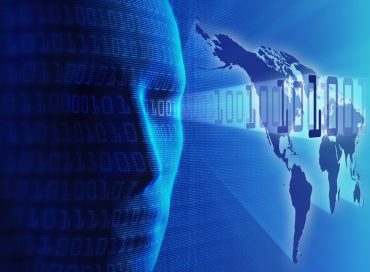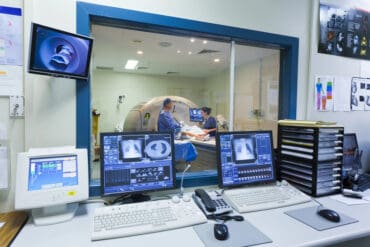
Can artificial intelligence begin to make a dent in the bloated healthcare system? Here are a few ways you could see that tech first.
Healthcare has grown increasingly sophisticated, but will remain perhaps one of the most people-intensive businesses around. Throw lots of ever-changing technology in with large essential workforces and ever-tighter margins, and you have a system that continues to groan under its own weight.
Can artificial intelligence begin to make a dent in this bloated system? While there is a great deal of uncertainty about the ultimate value proposition of AI across many industries, its applications in healthcare are very clear-cut. Effective healthcare delivery depends on real-time, split-second decision-making in life-and-death situations – and potentially saving significant amounts of money in the process.
While the verdict on closely watched AI systems such as IBM’s Watson to effectively deliver diagnosis and recommendations that are superior to doctors is still a question mark, the AI system has shown that it can apply volumes and volumes of medical information to any situation, dramatically improving the quality of diagnosis. An investigation released by STAT in 2017, for example, found Watson wasn’t “living up to the lofty expectations IBM created for it. It is still struggling with the basic step of learning about different forms of cancer.”
See also: Healthcare administrations get proactive, thanks to real-time analytics
However, as a report in CNBC suggests, “a system that’s ingested millions of previous cases” can help a clinician figure out whether a disease’s trajectory “is normal or unusual, and whether a different medicine is needed.”
A recent report out of Accenture also suggests there is potential with AI for the healthcare sector. AI promises to increase the responsiveness s of the healthcare industry, increasing successful outcomes while saving up to $150 billion in costs by the year 2020. “At hyper-speed, AI is re-wiring our modern conception of healthcare delivery,” state Matt Colier, Richard Fu and Lucy Yin, all with Accenture, noting in a recent report that spending on AI technologies is expected to grow tenfold over the next five years,
“AI today can truly augment human activity—taking over tasks that range from medical imaging to risk analysis to diagnosing health conditions.” The key here is augmentation and amplification – not replacement of human talent. This is where AI will demonstrate its value in significant ways.
Top AI technologies that will be seen in the healthcare space include robot-assisted surgery, virtual nursing assistants, and administrative workflow assistance.
#1: Robot-assisted surgery: “Cognitive robotics can integrate information from pre-op medical records with real-time operating metrics to physically guide and enhance the physician’s instrument precision,” the report states. “The technology incorporates data from actual surgical experiences to inform new, improved techniques and insights. Such improvements enhance overall outcomes and consumer trust for AI applicability across surgical areas of practice.” Accenture estimates that robotic assisted surgery will reduce lengths of hospital stays by at least 21 percent.
#2: Virtual nursing assistants: “When AI solutions remotely assess a patient’s symptoms and deliver alerts to clinicians only when patient care is needed, it reduces unnecessary hospital visits,” Colier and his colleagues point out. “It can also lessen the burden on medical professionals. AI can save 20 percent of RN time through avoided unnecessary visits. As virtual nursing assistants become accustomed to patient diagnoses and conditions, their abilities will grow beyond effective triage into expertise and recommendations around patient treatment.”
#3: Time-saving administrative workflow assistants: The operating room or bedside aren’t the only places AI will be making a difference. Technologies such as voice-to-text transcription will also play a role in healthcare delivery, helping to “eliminate non-patient care activities including writing chart notes, prescriptions and ordering tests,” Colier and his colleagues suggest.. “This equates to a work time savings of 17 percent for doctors, and 51 percent for registered nurses.”
And that’s just the start. Additional promising use cases for AI in healthcare include:
- Fraud detection
- Dosage error reduction
- Connected machines
- Clinical trial participant identifier
- Preliminary diagnosis
- Automated image diagnosis
- Cybersecurity




























